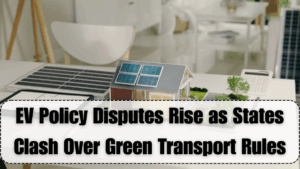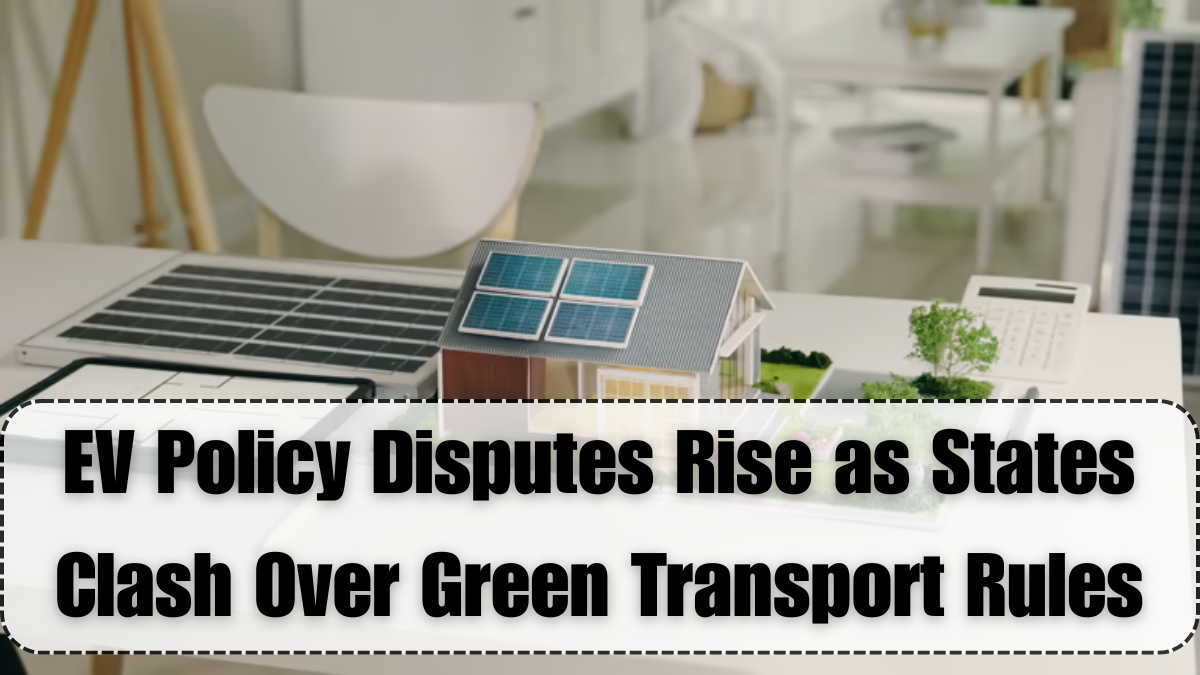EV policy disputes are intensifying across India as different states implement conflicting frameworks around electric vehicle regulations, subsidies, and infrastructure policies. Arbitration India, a leading dispute resolution organization, has released a comprehensive analysis that highlights the inconsistencies and legal battles now arising from the decentralized rollout of EV initiatives.
India’s green transport movement has accelerated rapidly, but the lack of a unified policy has resulted in various states interpreting EV laws and subsidies differently. This has triggered several policy conflicts, especially concerning manufacturing incentives, registration processes, battery safety norms, and inter-state commerce rules. As a result, legal challenges are piling up between private companies and state authorities, leading to prolonged arbitration.

The Root of India’s EV Law Conflicts
While the central government promotes electric mobility through programs like FAME-II, the execution is largely left to individual state governments. This has created overlapping and sometimes contradictory policies that confuse both EV businesses and consumers. Arbitration India’s report outlines how these EV law discrepancies are leading to commercial disruption.
Key conflict areas include:
-
Varying tax incentives and registration fees
-
Lack of mutual recognition of retrofitted EVs between states
-
Differing rules for EV battery disposal and safety standards
-
Delays in infrastructure funding for green transport corridors
-
State-specific procurement guidelines for EV fleets
With each state following its own approach, companies often find themselves stuck between compliance requirements and operational limitations.
Arbitration as a Tool for Policy Resolution
To manage these growing EV policy disputes, Arbitration India is now assisting affected parties through structured mediation and arbitration mechanisms. These tools help businesses resolve policy conflicts without lengthy court battles, enabling smoother business continuity and regulatory negotiation.
The advantages of using arbitration in EV law disputes include:
-
Quicker resolution compared to litigation
-
Neutral and specialized arbitrators
-
Enforceable awards that hold legal power
-
Preservation of business relationships
-
Confidential handling of trade-sensitive matters
Arbitration India has handled several recent cases involving inter-state EV commerce, fleet procurement issues, and infrastructure delays due to unclear state mandates.
The Call for Uniform Green Transport Regulations
Industry experts, supported by legal advisors, are calling for a national-level harmonization of green transport rules to prevent further policy fragmentation. Arbitration India has suggested creating a centralized policy dashboard for EV startups and corporations to understand regional regulations before investing or scaling operations.
Their recommendations include:
-
Standard EV definitions and safety codes
-
Centralized online portal listing all state policies
-
Model regulations for registration and conversion approval
-
Guidelines for inter-state battery movement and recycling
-
Clear framework for public and private charging infrastructure rollout
Resolving EV policy disputes through arbitration while also working towards standardization could help India maintain its momentum in becoming a global EV leader.
FAQs
What are EV policy disputes?
They refer to legal conflicts arising from inconsistent or unclear EV regulations across different Indian states.
Why are policy conflicts common in India’s EV sector?
Due to decentralized implementation, each state has its own version of EV law, creating contradictions in subsidies, rules, and approvals.
Who is helping resolve these disputes?
Arbitration India is actively helping businesses and state entities resolve EV policy disputes through mediation and arbitration.
What are common EV law issues leading to arbitration?
Conflicts usually involve registration fees, subsidy eligibility, charging infrastructure rules, and green transport procurement delays.
What’s the solution to these disputes?
Experts recommend harmonizing laws nationally and using arbitration to quickly resolve ongoing policy conflicts.
Click here to know more.
